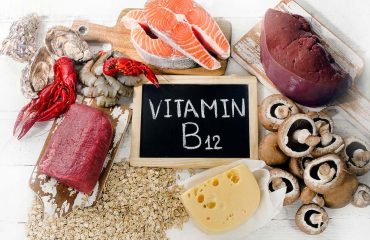Sugar is added to everything and the more sugar you eat, the more sugar your body will begin to crave. This has created an epidemic of sugar addiction in the United States. According to the American Heart Association (AHA), the maximum amount of sugar you should consume in a day is 150 calories per day for men, or 9 teaspoons, and 100 calories a day for women, or 6 teaspoons. Children should have significantly less with a recommendation of only 3 teaspoons a day. If you were to eat a teaspoon of pure sugar, that sounds like a lot, but when added to foods the amount of sugar we consume adds up quickly.
Why is eating too much sugar bad for you? Too much sugar, or hyperglycemia can cause:
- Sugar is calorie dense and it is easy to consume too many calories when you eat foods high in sugar.
- Consuming sugar will increase your blood sugar level
- Increases cholesterol levels including, raising triglycerides and LDL, and lowering HDL which can increase your risk of coronary artery disease.
- Sugar promotes chronic low grade inflammation leading to heart disease, diabetes, allergies and some cancers.
- Sugary foods do provide the feeling of satiety that more nutritional foods provide, leading to you to consume more calories to fill full.
- Sugar intake contributes to obesity and weight gain and increases your risk of developing diabetes
- Sugar increases the risk of some cancers
- Neuropathy or nerve damage
- Kidney damage
- Diabetic retinopathy or damage to the blood vessels of the retina which can lead to blindness
- Cataracts
- Arthritis
- Damage to the teeth and gums
- Liver disease
- Inflammatory bowel disease
According the American Heart Association, there are two types of sugars; 1. Natural sugars that come from milk, fruits and vegetables, and 2. Added sugars or artificial sweetners. Added sugars are removed from their original source and added to foods and drinks to increase shelf life and increase the sweetness.
Added sugars are found processed foods and drinks and include:
- Syrup
- High fructose corn syrup
- Corn syrup
- Raw sugar
- Sugar
- Brown sugar
- Honey
- Agave
- Malt sugar
- Molasses
- Molecules ending in “ose” i.e dextrose, fructose, glucose and sucrose
Foods high in added sugars include:
- Sodas and juices
- Chocolate milk
- Flavored coffees
- Iced tea
- Breakfast cereals
- Granola bars, energy bars and protein bars
- Salsas including ketchup and BBQ sauce
- Spaghetti sauce
- Dried fruit
- Canned fruit
- Peanut butter
- Jams and jellies
Too much sugar is bad for your health, but your body needs sugar. Glucose is the primary source of energy for every cell in your body. Your brain is the most energy-demanding organ and uses about half of the sugar in your body. The American Heart Association recommends that no more than 5-15% of your total calories should come from fats and sugar.
Not getting enough sugar can also be bad for your health and cause discomfort. Low blood sugar, or hypoglycemia is caused by not eating enough calories or not eating for long periods of time, too much exercise, and alcohol intake. The symptoms of low blood sugar include feeling shaky, sweaty, racing heart, feelings of anger or frustration, and mental confusion.
Consuming natural sugars should not cause you any concern. Natural sugars found in milk, fruits and vegetables act differently than added sugar. Whole foods that contain natural sugars also contain protein and or fiber which causes the sugars to be absorbed slowly preventing spikes in your blood sugar. A diet high in whole foods such as fruit, and vegetables has numerous health benefits including; improved insulin levels, improved cholesterol levels, reduced blood pressure and lower inflammatory markers.
Anti-Aging and Wellness Clinic provides medical weight loss and nutritional counseling to help you ensure you are eating the proper foods and consuming a healthy amount of natural sugars. A critical component to any age management program is body to fat ratio. Following a complete medical history, body composition analysis, comprehensive blood test and discussion of your personal goals, we will work with you to develop a nutrition plan tailored to your specific needs. As you progress through our age management program your nutritional needs may change and will continue to work with you to refine and manage your personalized nutritional plan.
At the Anti-Aging and Wellness Clinic you and your anti-aging specialist will develop a nutritional plan tailored to your specific needs. Eating a wide variety of fruits and vegetables can; boost your skin’s UV resistance; generate a youthful healthy, glow; increase your energy level, improved your mood and sense of well- being and positively affect your overall health.
Some tips for increasing your intake of natural sugars and reducing your intake of added sugars:
- Eat more fruits and vegetables
- Eat more healthy fats and food rich in antioxidants including fish, olive oil, coconut oil, nuts, seeds and avocados
- Limit your consumption of processed foods and drinks
- Read food labels paying special attention for ingredients such as high fructose corn syrup, sucrose, glucose and dextrose
- Choose whole-grain cards including whole grain oats, whole-grain pasta, quinoa and barley.
- Engage in regular physical exercise
Calorie restriction, physical exercise, low stress conditions and a balanced nutritional diet are critical for fighting the signs of aging. The experts at the Anti-Aging and Wellness Clinic focus on creating a customized health program based on your specific needs. Contact us today and let us help you achieve your peak physical and mental performance.








